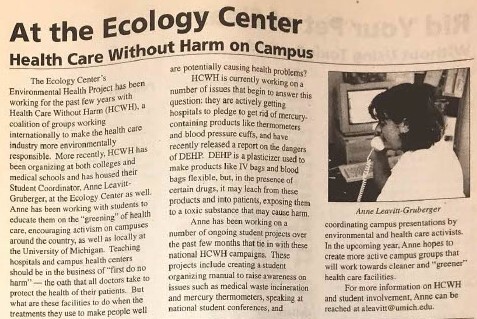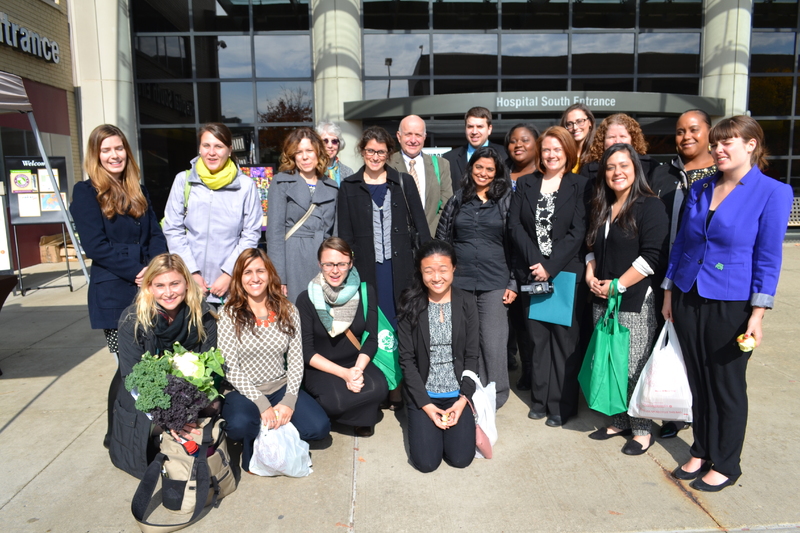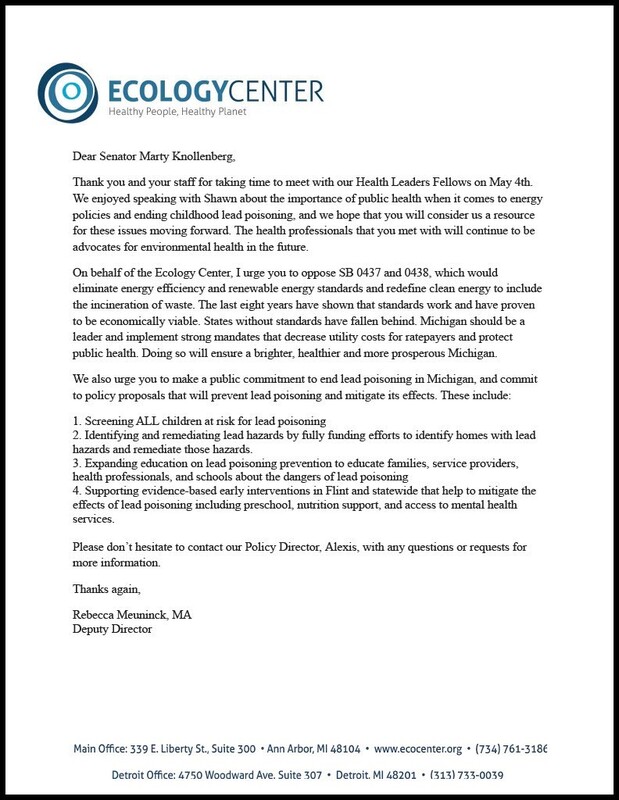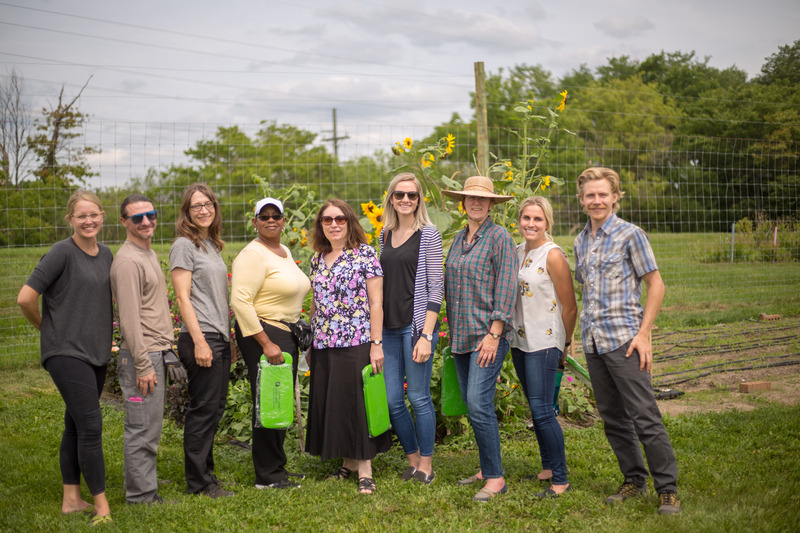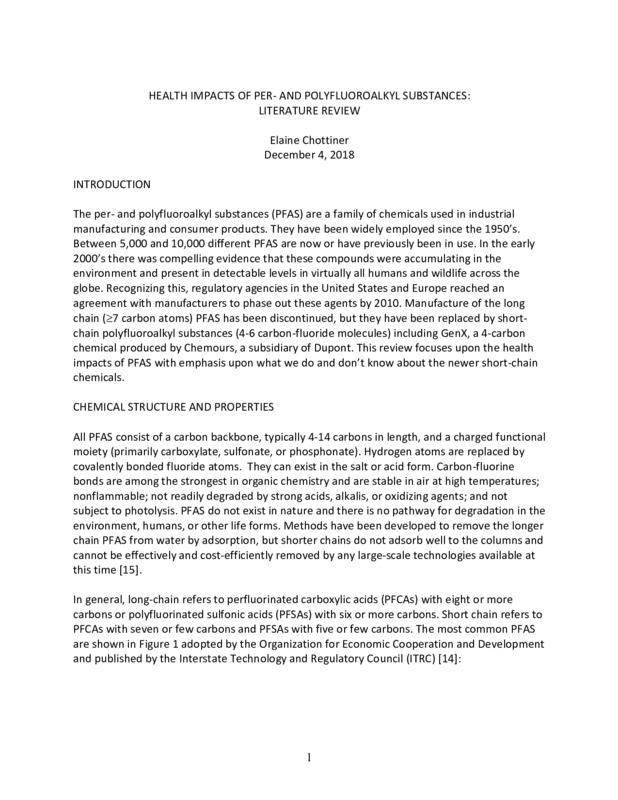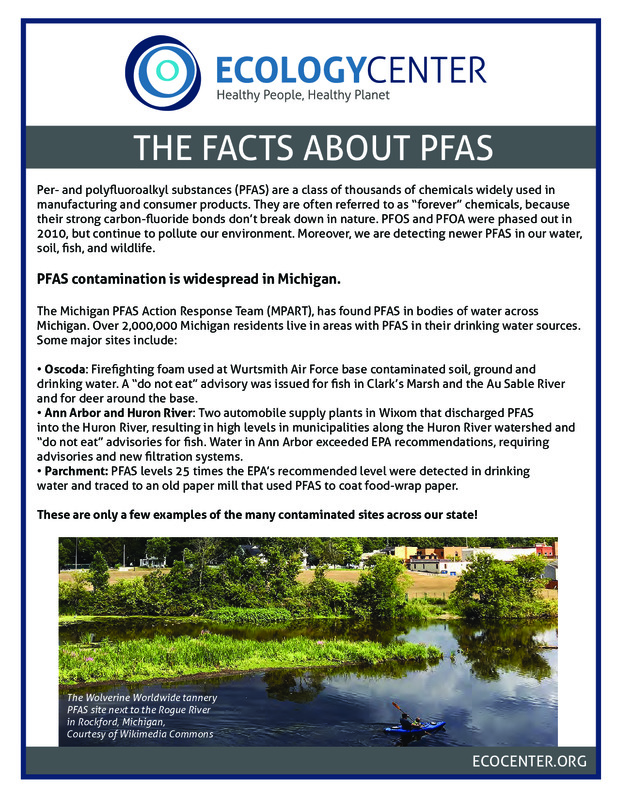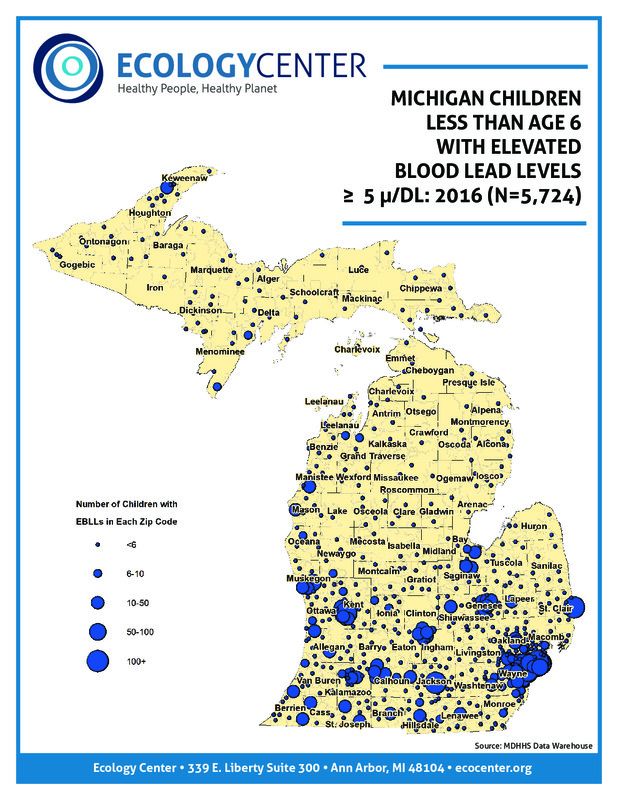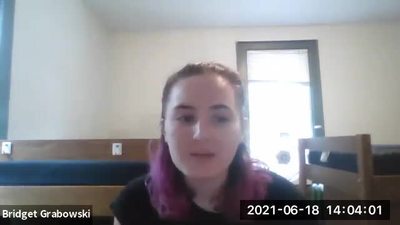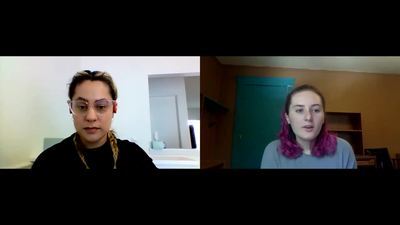Health Leaders Fellowship
The Health Leaders Fellowship (HLF) was created by the Ecology Center (EC) in 2014. It aims to educate healthcare professionals on environmental and health problems related to toxics, climate and energy, and food. By educating healthcare professionals, the HLF empowers them to use their voices as respected individuals to create policy and institutional changes. Over 100 fellows have completed the program. They have, among other things, brought changes in renewable energy legislation, spread awareness of toxics issues, created change in their institutions and advocated for issues impacting the health of Michigan communities.
Ecology Center and Activism in the Healthcare Industry
Links between the EC and health care workers predate the creation of the HLF. The historical relationship between the EC and health care is complex. At times it has been antagonistic via rallying public pressure and leading protests, yet at others, it has been collaborative and positive.
The fight against medical waste incinerators exemplifies the antagonistic side of the relationship between the EC and health care. As discussed in the article on EC activism against waste incinerators, burning medical waste releases dangerous toxins which can cause cancer, developmental problems, and birth defects. Advocacy from the EC and other organizations helped shut down all of the state’s 157 medical waste incinerators by 2005. By engaging in direct action against hospitals as well as helping hospital administration to develop sustainable waste elimination practices, the EC both worked with and against the healthcare industry in order to create change.
The EC has also been able to work with those in the health care industry—in addition to being an outside pressure—through initiatives like Health Care without Harm (HCWH), a coalition formed in 1996 that brought together health care associations, environmentalists, and community organizers who were committed to reducing the environmental footprint of the healthcare sector. HCWH at times worked within the healthcare industry to create change, and at others—in the case of advocacy against medical incinerators—worked as an outside pressure. In an article from the EC publication From the Ground Up, the involvement of HCWH in colleges and medical schools was discussed, noting that their aim was to educate students on the “‘greening’ of health care” and to encourage activism. Although this was not a structured program in the same way that the HLF is, the education of future health care workers on environmental and health issues reflects the goal of the HLF and may have served as a source of inspiration when creating the program.
Through HCWH, the EC created official ties to a number of people and associations in the health care sector. These ties have allowed for programs like Healthy Food in Healthcare and Fresh Prescription—created in 2005 and 2013, respectively—to successfully build upon the example of HCWH. Both Healthy Food in Healthcare and Fresh Prescription have led the EC to work with healthcare institutions to get nutritious and local food into hospitals and to patients.
Creation of the Health Leaders Fellowship
Rebecca Meuninck—the EC deputy director—and others at the EC began talking about forming a program like the HLF in 2012. A large reason for creating the fellowship was to engage health professionals in issues regarding toxic chemicals, food issues, and climate change so that healthcare leaders would be equipped to lobby legislators and engage in the media. The EC targeted healthcare professionals because doctors and nurses have been cited as some of the most trusted professions in Gallup polls. By educating them, the EC hoped to create greener hospitals, promote positive movement in public policy, and to foster relationships with other health care workers who could become environmental and health advocates.
The University of California at San Francisco ran a program from 2010 through 2016 called Reach the Decision Makers that was a source of inspiration for the EC as they were planning the HLF. Both Jennifer Canvasser—the EC Environmental Health organizer—and Joyce Stein—a retired nurse who worked with the EC—attended sessions of the program. The program educated health professionals on environmental and health issues, understanding the value of their trusted positions as healthcare workers in facilitating change, much like the HLF would in the future. Unlike the HLF, the program focused more on reaching the federal government and was a less intensive program, with participants only meeting a few times. Both Canvasser and Stein helped the EC create the HLF, drawing some inspiration from their experiences in Reach the Decision Makers. Although the HLF was in the works in early 2012, it took a couple years to get funding, create a curriculum, and to recruit heath professionals for the program.
Joyce Stein served as another significant source of inspiration for the HLF during its development. Stein had been working with the EC by being involved in campaigns to prevent exposure to toxic chemicals, unclean air, and to stop climate change. Stein’s expertise as a health professional engaged in environmental work was crucial in helping plan the HLF. As of 2021, she holds a place on the EC’s board of directors and continues to be an important figure for the HLF.
Stein saw the program as an important supplement to medical training, as health care workers would learn more about environmental exposures to health risks, rather than focusing on individual health outcomes, which is what is taught in nursing and medical school. With the help of Joyce Stein, Rebecca Meuninck and others at the EC were able to turn the HLF into a reality. The importance of Stein as an inspiration is clear in the way in which Meuninck describes the goal of the program as
"Being able to ‘have more Joyce Steins’—so to speak—was a critical thing for us to do."
Rebecca Meuninck continued to be an important presence in the HLF, staying involved especially in issues relating to toxics. However, Mara Herman—the EC Health Policy Specialist—began to take over as program coordinator in 2016. Herman was a climate and energy fellow in the first cohort and—as of 2021—has continued to be involved in the HLF.
How the Program Works
Health professionals apply to the program and a number are selected as fellows for the cohort. After the EC has selected their new cohort of health professionals, they begin the 9-month program, which runs from April through December. During the fellowship, there are three training components: issue engagement, skill development, and practicum. These components are a combination of in-person modules, remote webinars, and in-person field experiences. The EC has formed the fellowship as a flexible program in order to accommodate the busy schedules of the individual health professionals. The pandemic led the 2020 and 2021 cohorts to be completely virtual, increasing this flexibility. Additionally, the program is free—funded by donors and sources like the Rebecca Head Fund—and even provides a stipend for fellows to use in their practicum project.
Issue engagement is the first set of modules which occurs during April and May. This portion aims to deepen the health professionals’ understanding of the three issue areas—climate and energy, toxics, and food—and the connection between these issues and “the health of individuals, communities, our nation, and the environment.”
Skill development is the second set of modules—running from July through August—and examines issues by providing strategies for making change. During this time, fellows engage in activities that allow them to interact with industry leaders and see these current models and modes of change first-hand. A few activities that occur during this time are the Facilities Day, Spokesperson training, and Lansing Day. Facilities Day provides the fellows with the opportunity to learn about different sustainable initiatives being implemented by hospitals and other healthcare institutions. Spokesperson training—aided by the organizations Progress Michigan and Engage Michigan—is an opportunity for fellows to think about how to speak to different audiences and to build up their confidence in public engagement. During the Fellowship’s Lansing Day, the fellows get the opportunity to talk to legislators. Mara Herman, the program coordinator, said:
The experience at Lansing Day is “really beneficial because it’s really an opportunity for them [the Fellows] to see the importance of their voice, share the information that they have, and to tell their own stories.”
For many fellows, it is the first opportunity for them to talk directly to legislators about health issues and it empowers many to continue lobbying and advocacy efforts. The different activities allow fellows to both learn about the current state of green practices in the healthcare system and gain skills to create change where it is needed in healthcare and legislative systems.
The final component of the HLF is the practicum, which occurs from August through December. Through the two earlier stages, the EC teaches fellows how to engage in advocacy using their position as a respected health professional. In the final component, fellows are able to apply the knowledge and skills they developed during issue engagement and skill development. Every year there are three issue areas the fellows can engage in for their practicum—climate and energy, toxics, and food. The exact issues tackled by Fellows within these areas differ from fellow to fellow and year to year. Fellows work with local advocates to develop their practicum project. The project ultimately aims to help fellows integrate their engagement in the fellowship into their work. Some projects focus on public health policy and legislation, whereas others focus on creating change within hospitals and healthcare institutions.
The combination of different types of training provides health professionals with the skills to make changes in their communities and in the public policy sphere.
Outcomes of the Health Leaders Fellowship
Through the program, the fellows learn how to be advocates and gain a significant amount of knowledge on the intersections between health and the environment. Fellows create change through their practicums, with some involving pushing for change via advocacy in public policy, whereas others focus on implementing changes within their organization or institution. In addition to fellows making change individually, there are also a few accomplishments of the fellowship itself. Over 100 fellows have completed the fellowship. Also, the type of training created for the HLF has played a key role in developing the training for the coalition the Great Lakes Lead Elimination Network, which is launching in July 2021. This network will lead to resolution and change, in Rebecca Meuninck’s words, by helping to “lift up voices and share the stories of those [lead] impacted community members and share them with our decision makers in Lansing and Washington, D.C.” Significant achievements have also been made in the three issue areas, both by fellows and by cohorts.
Climate and Energy
The fellows have tackled a number of climate and energy issues. The first cohort focused on efforts to update Michigan’s energy policy by promoting energy efficiency and renewable energy, while also highlighting the danger of burning coal to public health.
Another issue addressed by the HLF is The Clean Power Plan (CPP). The CPP is a rule created by the Environmental Protection Agency that calls for states to reduce their power plant carbon emissions. The HLF helps this plan by enabling health professionals to speak about the health detriments of carbon pollution, allowing the fellows to advocate for social and policy changes to aid the reduction of carbon emissions.
In 2016 at the HLF Lansing Day, the cohort spoke to a number of legislators, urging them to oppose SB 0437 and 0438, which proposed eliminating energy efficiency and renewable energy standards and the redefining of clean energy to include the incineration of waste. Later in the year, new energy legislation was passed with more environmentally friendly standards. Mara Herman commented:
“If we [the EC] weren’t using health messaging, I don’t know if we would have been able to do that as quickly as we did, when it came to ensuring the definition didn’t change.”
Toxics
Toxics are another significant issue area for the fellows. In June 2015, fellows met with State Senators and Representatives and held meetings “spreading awareness about a Lindane bill that could protect our children from toxic lice treatments.” A few individual fellows that have tackled toxic issues are Dr. Ashley DeHudy from the 2017 cohort and both Dr. Elaine Chottiner and Dr. Rhonda Conner-Warren from the 2018 cohort.
Dr. DeHudy is a pediatrician who raises awareness about toxic chemical exposures in children, such as safe drinking water, food free of contaminants, and green spaces. She has also spoken on switching school buses from using gas to electric as it benefits both the environment and children’s health. After being a fellow, DeHudy has had continued interest in toxins impacting the health of low-income children. Although DeHudy is not working with the EC as of 2021, her continued work in toxics demonstrates the lasting impact of the HLF.
Dr. Chottiner’s interest is in carcinogenic chemicals due to her experience as an oncologist. After writing a detailed literature review on the effects of PFAS, she helped the EC to create an informative handout to send to state representatives and legislators to warn of the dangers of PFAS, hoping to make legislative change. Chottiner learned more about PFAS and advocacy at the state level, attributing much of this growth to the education and support given by Rebecca Meuninck and the EC. Chottiner has been instrumental in creating drinking water standards for PFAS through her testimonies, advocacy, and review of literature on PFAS.
Dr. Conner-Warren was a toxics fellow who focused on lead impacted communities. She has continued to be an important figure in the EC. Conner-Warren collaborated with Mara Herman on MI-Air MI-Health Coalition presentations urging student nurses to use their voices to advocate for their patients and communities. She has also been engaged in the Filter First campaign by providing testimony and attending educational events for communities and legislators to stress the importance of having filtered drinking water in schools. Conner-Warren has continued to work with the EC as of 2021.
As seen in the experiences of fellows like Rhonda Conner-Warren, Elaine Chottiner, and Ashley DeHudy, the HLF has enabled many health care workers to become environmental and health advocates, allowing them to have a larger positive impact not only on their patients, but also on the world at large.
Food
Food issues refer to the industrial farming and manufacturing processes that are damaging for the environment and public health. The focus of the first cohort was on pushing hospitals to purchase antibiotic-free meat to reduce the risk of antibiotic resistance. Fellows have also pushed health care institutions to make a pledge with the EC program Healthy Food in Health Care, make a baseline assessment for sustainable purchasing, determine their food goals, and—most relevant to the fellowship—educate the professionals in the community. Their goal is to slowly change the food sourcing for the health care sector, leading to larger societal changes due to the respected position health care workers hold. The HLF just plays a small role in the larger movement the EC is part of to create a safer, more equitable, and healthier world.
Looking Forward
The outcomes of the three issue areas show just some of the significant engagement by fellows both during and after their time as fellows. Liz Starke noted the enthusiasm when reflecting on the first cohort of fellows:
“It seems like almost everyone is going to continue their practicum work, as well as stay engaged in advocacy issues. Besides the program itself, many expressed the community of peers created by the program was one of their favorite aspects. Some have already arranged to continue to meet with fellows in their area, both from this past year and our new cohort.”
Fellows like Mara Herman, Elaine Chottiner, and Rhonda Conner-Warren have continued their involvement in the EC and others have been involved in other environmental and health causes, like fellow Ashley DeHudy. With the continued work of these fellows, the HLF has lived up to its goal of creating “more Joyce Steins.”
In 2020, the coronavirus and renewed wave of social justice movements have led to some changes moving forward. The flexibility created with more webinars and remote events in the past year will likely continue to some extent. Due to the busy schedules of healthcare workers, the virtual format works well, allowing for greater flexibility and workshops extending over multiple days. Additionally, the surge in social justice movements has led fellows to want to hear more about social justice issues from impacted community members, allowing them to directly address social and environmental justice issues. Although the interest by fellows has increased in the past year, Mara Herman notes that these have always been issues the HLF has addressed: “One thing that we’ve always been aware of is around environmental justice, environmental racism, social determinants of health—those are all things that have always been a part of the program in general.”
Due to the changes throughout 2020, as of 2021, the HLF is at a transition point. Herman is sure the program will continue to exist and grow in the future. However, due to these changes, there are numerous avenues for the program to go in as it continues to successfully empower and engage health professionals.
Article written by Bridget Grabowski, member of the Spring/Summer 2021 Research team.

